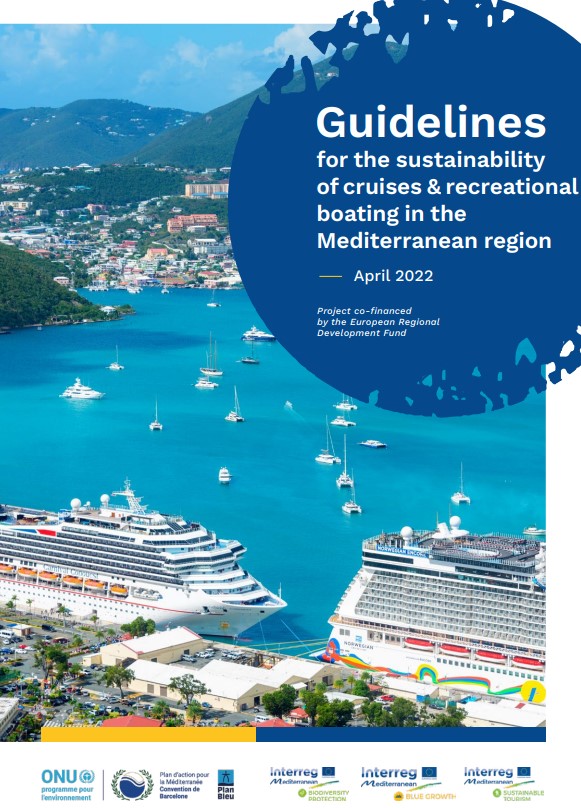Plan Bleu, centre of expertise for development and environment at the service of the countries bordering the Mediterranean Sea, just published its “Guidelines for the sustainability of cruising and recreational boating in the Mediterranean region”. These high-impact measures will support Mediterranean countries in reaching their commitments made in the framework of the European Green Deal, the Sustainable Development Goals, the Mediterranean Strategy for Sustainable Development and more recently the new Strategy for a Blue Economy adopted by the European Commission.

These guidelines aim to provide an analysis of the impacts of the cruise and yachting sector. They also make it possible to establish a report on good practices for sustainable development in this sector. Finally, they provide food for thought for political decision-makers and people competent to legislate and limit pollution in these sectors. Five major challenges
have been identified for these two sectors:
- Eliminating atmospheric emissions of pollutants and greenhouse gases;
- Safeguarding ecosystems and biodiversity;
- Eliminating water pollution (chemical, organic, wastewater effluents), preventing waste generation, and improving waste management;
- Boosting knowledge and innovation;
- Avoiding the impacts of these two sectors on local socio-economic systems.
Four case studies illustrate the implementation of the good practices identified by the Guidelines. They include CO2 emissions reductions in the port of Marseille (France), the implementation of a cetacean detection system onboard cruise ships, the “Ports Propres” certification that recognizes environmental management in marinas and the zoning of the Portofino Marine Protected Area in Italy.
This work was carried out by Plan Bleu in the framework of the Interreg Med program: Blue Growth Community in partnership with two other Interreg communities: the Mediterranean Biodiversity Protection Community and the Sustainable Tourism Community. To draft the Guidelines, a participatory approach was applied through the creation of a multi-stakeholder group that gathered more than 100 Mediterranean stakeholders (representatives of port authorities, cruise activities, local authorities, researchers, nautical industry, environmental associations, tourism observatories managers). These guidelines proposed by Plan Bleu are intended as much for those involved in the cruise and recreational boating sectors as for port authorities and decision-makers.
(Source: Federazione del Mare)

